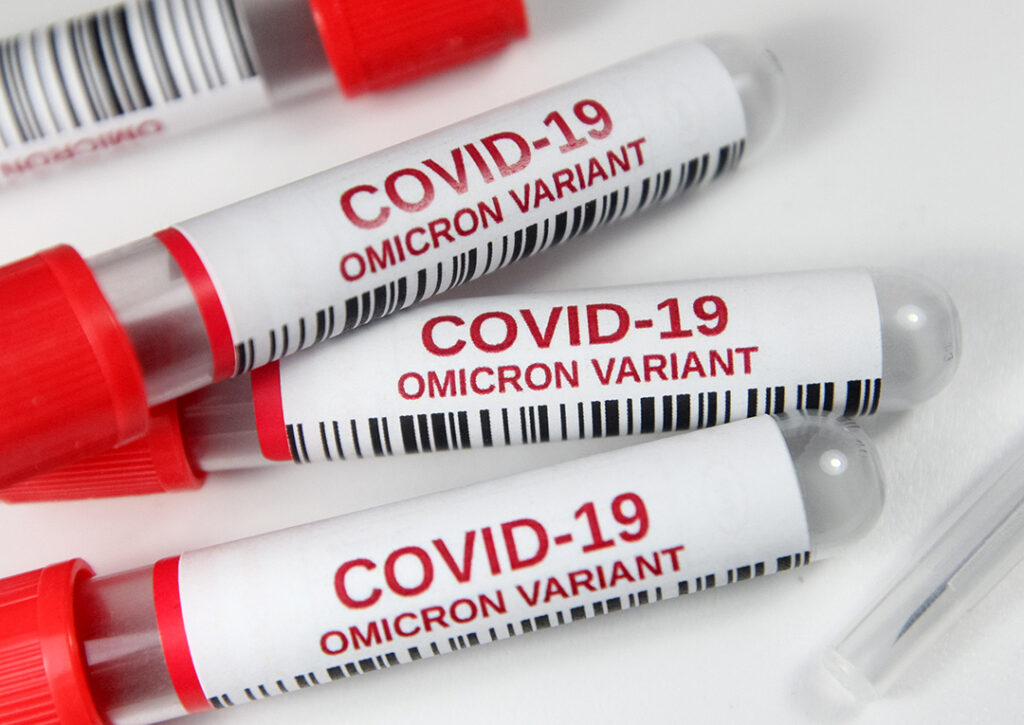ADF STAFF
The omicron variant of COVID-19 presents an increased risk of reinfection for the millions of people across Africa who have recovered from the disease, according to public health experts.
“Previous infection used to protect against delta, but now with omicron that doesn’t seem to be the case,” Professor Anne von Gottberg, a microbiologist with South Africa’s National Institute for Communicable Diseases (NICD), said during a recent news briefing by the World Health Organization’s Africa regional office.
“Even those with natural immunity can become infected,” von Gottberg said. “That is what we need to monitor.”
The omicron variant, which has begun to displace the delta variant in parts of Southern Africa, spreads twice as fast as delta, according to researchers. It also shows dozens of mutations, including several that can help it escape the body’s defenses.
Analysts at the biomedical firm nference say that omicron carries a bit of genetic code similar to material found in a virus that can cause the common cold. They believe omicron may have evolved in someone infected by both viruses.
According to the Africa Centres for Disease Control and Prevention (Africa CDC), 8.1 million Africans have recovered from COVID-19 infections, a situation that means they have some natural immunity to the virus. Research shows natural immunity wanes over time but doesn’t completely go away.
Despite that, omicron infections are rising quickly. In the last week of November, the Africa CDC reported COVID-19 cases doubled compared to the previous week.
The 52,300 new cases included more than 31,000 in South Africa alone, an increase driven by omicron cases detected in that country’s Gauteng province, home to Johannesburg.
The NICD reported that the country’s COVID-19 tests are showing a positivity rate of more than 24%, nearly three times the rate of a week earlier.
Despite the speed that omicron is spreading, Africa CDC Director Dr. John Nkengasong has urged people to remain calm.
“We just need to be patient and know that we are not helpless,” Nkengasong said during a news briefing. “We’ve flooded many more tools on the battlefield against this virus.”
Nkengasong said that omicron can be managed with the same methods the continent has used to hinder the spread of COVID-19 since the pandemic began in early 2020. Those methods include masks, hand-washing and avoiding large crowds.
“The public health measures apply to everything,” Nkengasong said. “They work against any variant.”
Each infection creates a new opportunity for the COVID-19 virus to create new, potentially more virulent versions of itself.
Omicron, like other variants, spreads through transmission among unprotected people. Given the number of mutations, it is likely that omicron evolved from a patient with a compromised immune system.
“Especially in those with compromised immune systems, the individual will struggle to clear the virus,” Nkengasong said. “The more that struggle continues, the more the virus wins.”
Scientists reached a similar conclusion about a different variant — C.1.2 — that appeared during the delta wave but never became a threat like omicron.
The COVID-19 virus’s mutations have been focused mostly on spike proteins, the projections that help the virus invade cells where it can reproduce. Omicron has about 50 mutations, including 32 across a variety of spike proteins, according to researchers.
“The omicron situation will teach us because of the excessive number of mutations that are out there,” Nkengasong said. “The critical sites at which the mutations are occurring will teach us a lot of what the future holds for us.”

